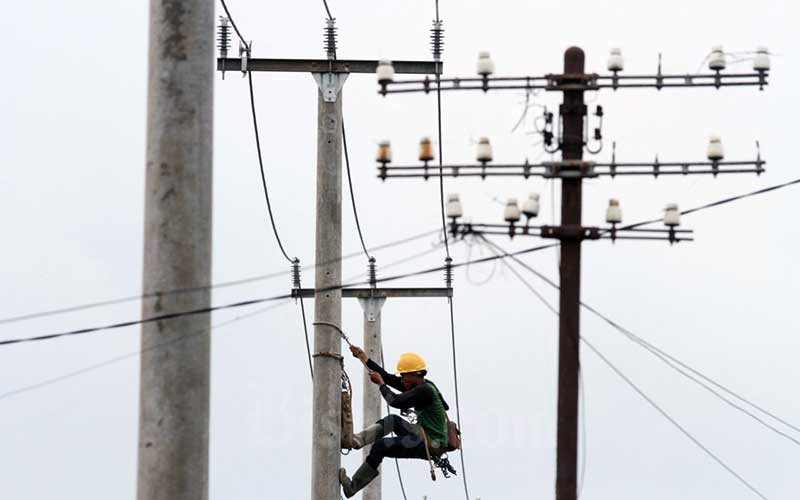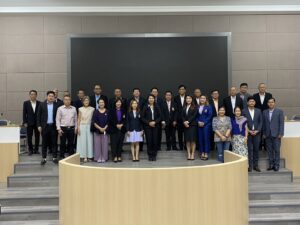[ad_1]
BEIJING, April 25 — The battle for consumer attention in China’s electric car market is being fought over touches of “tech luxury” that car buyers in other markets have never seen.
China’s upstart electric brands, and even its state-owned, legacy automakers, are racing to pack technology and features once considered premium into EVs as cheap as US$20,000 (RM95,553) — less than half the cost of an average new car in the United States, now more than US$48,000.
That represents a deepening challenge to foreign brands in China, including Tesla and Volkswagen, which both have top-selling EVs in the world’s largest market, and others, analysts say.
Advertisement
Last year, BYD shocked the automotive industry with the release of its Seagull EV, now priced under US$10,000, at the Shanghai auto show. The Seagull is now China’s fourth-best selling EV.
But other Chinese automakers, including state-run companies that were later entrants to the EV race, have closed the gap on sub-US$10,000 EVs at the Beijing auto show that began today.
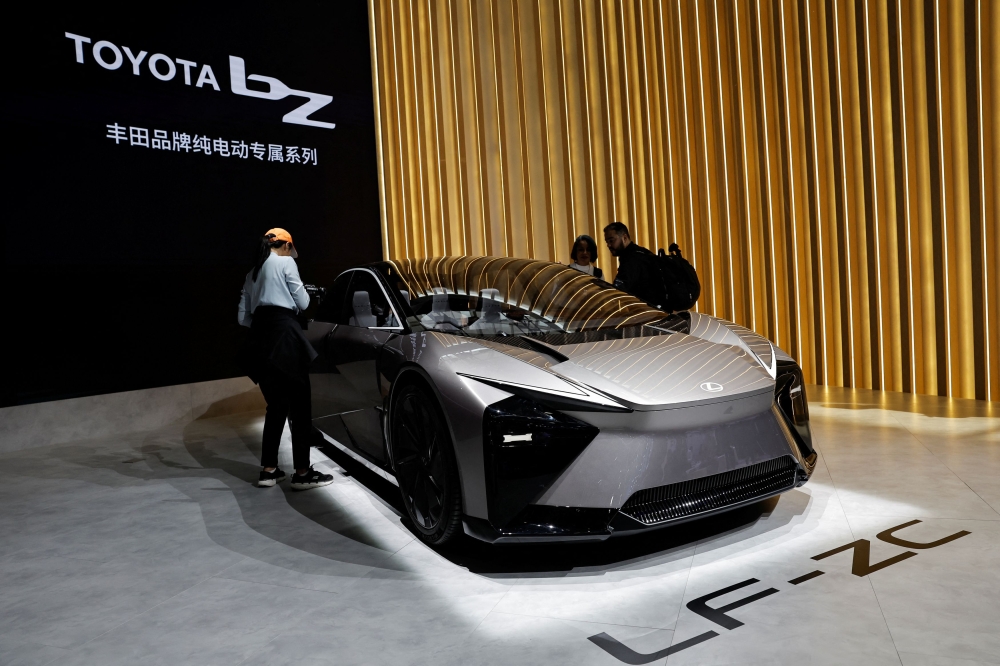
The Lexus LF-ZC electric vehicle is displayed at the Beijing International Automotive Exhibition, or Auto China 2024, in Beijing April 25, 2024. — Reuters pic
Advertisement
The market is also crowded with electric and plug-in vehicles starting near US$20,000 that still splash on once-expensive interior features and technology.
Chinese consumers, especially younger ones, rank “technology luxury” as an important consideration, and Chinese automakers are taking the lead on such features, said Raymond Tsang, a Shanghai-based Bain & Company partner.
“This is quite different from many other Western markets where traditionally car buyers are still weighting quite heavily on build quality, reliability, ride and handling,” he said.
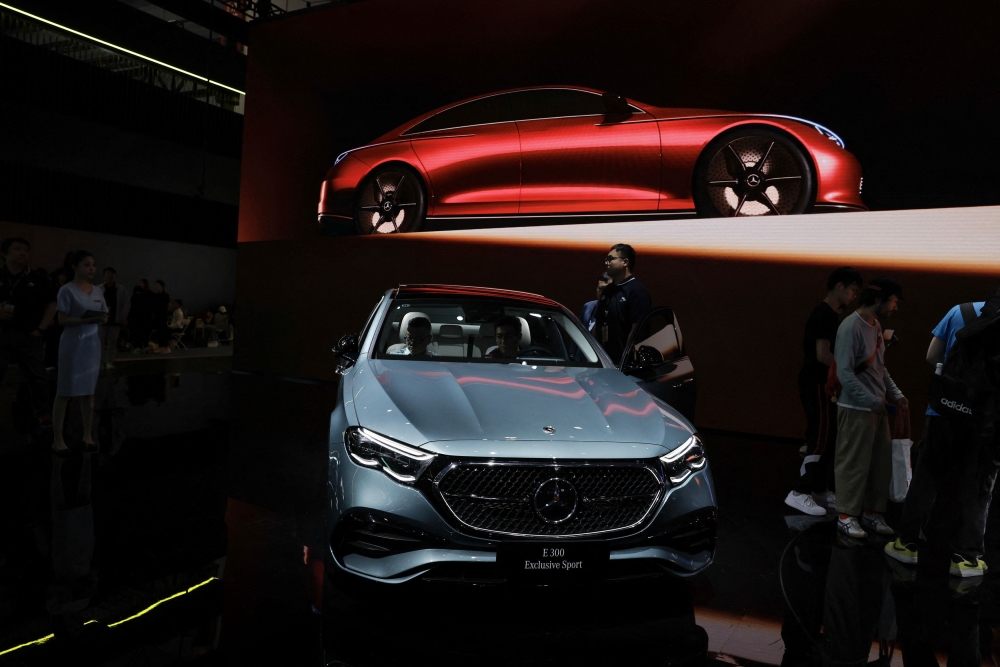
A Mercedes Benz E300 is displayed at the Beijing International Automotive Exhibition, or Auto China 2024, in Beijing April 25, 2024. — Reuters pic
Karaoke in your Mercedes
In a race to stand out, some Chinese brands are offering features intended to be fun, if not frivolous.
The Baojun Yep, a mini-EV by the SAIC-GM-Wuling joint-venture that starts around US$11,000, has a screen on the tailgate where drivers can flash messages such as “thank you,” or a heart emoji, to acknowledge the kindness of another road user.
The Zeekr 001 electric sedan, a premium offering in China that starts around US$37,000, has a front grille that can play music at a stop while giving pedestrians a bouncing string of thumbs-up emojis.
SAIC Motor brand Roewe’s just-released D5X DMH plug-in hybrid SUV, which starts around US$16,500, allows drivers to enter up to 10 different commands into a navigation system, such as a series of different destinations, all at once.
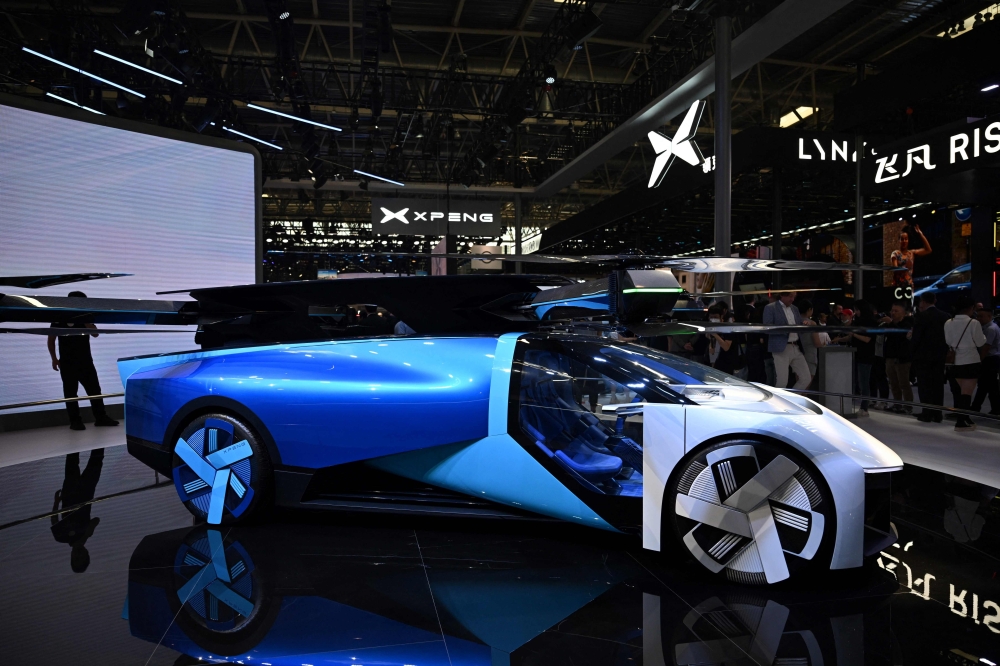
A Xpeng AeroHT flying concept car is displayed at the Beijing Auto Show in Beijing April 25, 2024. — AFP pic
XPeng and Nio, EV-focused companies that launched as startups, are rolling out mass-market brands for China where competition on price has become cut-throat. Xpeng expects its upcoming Mona-branded EV will be the first in China priced below US$21,000 to have high-level self-driving features.
“Even one or two years ago, I didn’t think we could achieve that,” XPeng co-president Brian Gu told reporters on the sidelines of the Beijing auto show.
In China, the price of specialised components — including sensors needed for self-driving features and screens for on-board entertainment — has tumbled and competition has intensified in the world’s largest auto market, analysts say.
Dongfeng, a state-owned automaker, is showing off the Nammi in Beijing. The EV with a 300-km (186-mile) range sells for US$9,600. It features flush door handles that pop out on command, an aerodynamic feature popularised by Tesla. Owners can start the car and open the doors remotely with a smartphone.
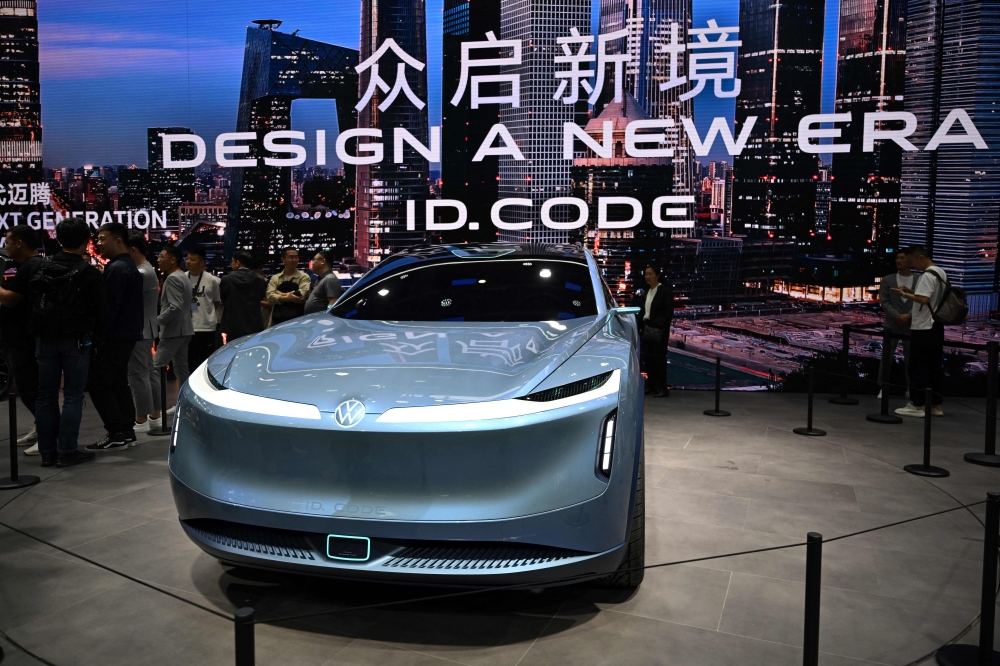
A Volkswagen ID.Code model car is displayed at the Beijing Auto Show in Beijing April 25, 2024. — AFP pic
‘Chinese wow effects’
Historically, US and European brands have been considered more luxurious and higher quality than Chinese brands. That’s changing fast, analysts say.
“The halo of foreign brands has almost disappeared,” McKinsey analysts said in an outlook for China’s auto market released in March. “Foreign, high-end traditional car owners are being transformed into Chinese high-end, new energy brand owners in an almost one-way flow.”
The German automakers are not standing still.
Volkswagen, China’s leading foreign brand, plans to deliver the “Chinese wow effects” tech-savvy consumers there expect, China chief Ralf Brandstaetter told reporters on Tuesday. Mercedes-Benz CEO Ola Kaellenius told Reuters that his Chinese digital tech team was dedicated to catering to the tastes of younger and more tech-oriented consumers in China.
“In the new E-Class, you can sing karaoke. Maybe you don’t have that feature in Germany. Maybe you should. But here customers love it,” he said.
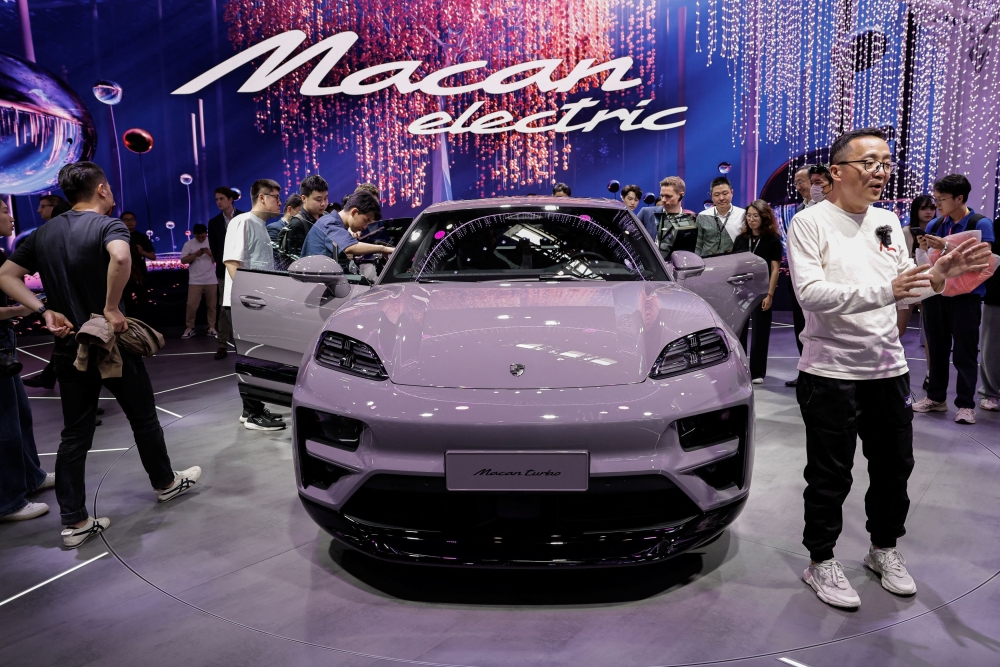
Porsche’s electric vehicle Macan Turbo is displayed at its booth during the Beijing International Automotive Exhibition, or Auto China 2024, in Beijing April 25, 2024. — Reuters pic
Both German executives said their cars had the capability to add new features with “China speed” through over-the-air software updates.
At Chinese tech giant Huawei’s flagship store in central Beijing earlier this week, Jack Xu was shopping not for a smartphone but for his first EV. The one that caught his eye was a Huawei-backed SUV under the Aito brand, an EV manufactured in partnership with Seres.
“For EVs, we are already leading the world,” the 36-year-old education worker said, looking at the display screen spanning the width of the front row. “Why would I choose a foreign car?” — Reuters
[ad_2]
Source link


